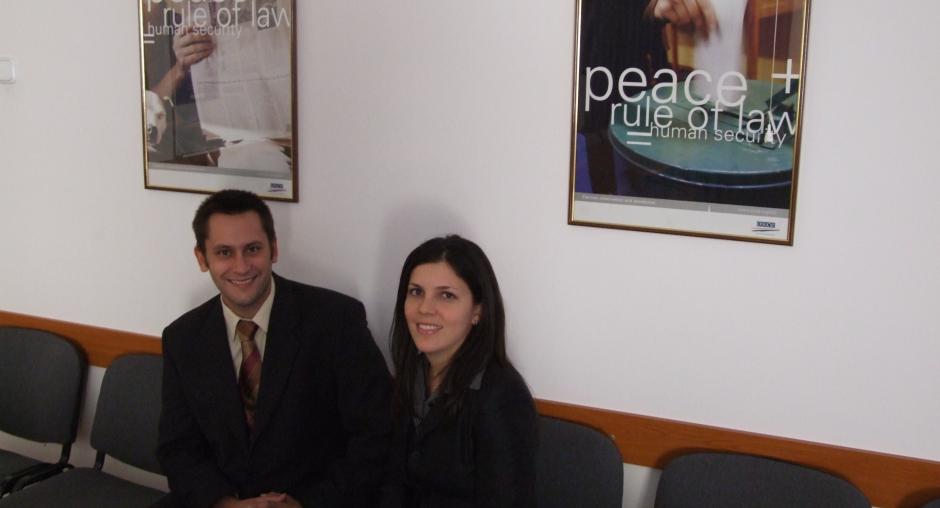Prosecution of war crimes

The OSCE Office in Zagreb supports Croatia's active efforts to prosecute war crimes. Experts from the Office and its predecessor, the OSCE Mission to Croatia, have monitored domestic war crimes proceedings since 1996, with comprehensive monitoring of all war crimes cases starting in 2002. On average, the Office monitors 100 war crimes proceedings per year. Between 25 and 30 percent of the monitored proceedings are active trials, with the remainder being arrests, extraditions, investigations, indictments, and appeals.
Monitors compile reports that are shared with all 56 OSCE participating States, including Croatia.
The Office also maintains contacts with judicial authorities to follow the implementation of action plans that aim to ensure fair processes.
Data from the Chief State Attorney show that in the period from 1991 to December 2010, almost 1,900 people were indicted on war crimes related charges and out of those, 600 were convicted. In August 2011, more than 600 indictments remained pending and 400 suspects were under investigation. Croatia has issued more than 600 international arrest warrants for war crimes suspects.
The OSCE monitors reported that though four specialized courts were available, most cases were investigated and tried in the communities where the crimes occurred – raising the risk for bias. Following amendments to the Law on the Application of the International Criminal Court Statute (ICC Law) adopted by Parliament in May 2011, four specialized courts – the county courts located in Zagreb, Rijeka, Split and Osijek – should handle all newly raised war crimes cases.
In recent years, Croatia's war crimes prosecution has concentrated on addressing mistakes from the past, reviewing cases in which the ethnicity of the victims and the perpetrators had been given undue importance and the nature of the crimes had not been properly considered. In late 2008, the Chief State Attorney adopted an action plan to decrease the large number of pending, unsubstantiated cases. Another focus is investigating and indicting commanders or people in senior positions, including members of the Croatian armed forces for serious crimes against Serb victims. The OSCE Office is working with the authorities to encourage progress in these fields.
The legal framework in Croatia and the countries in the region limit judicial co-operation, which raises a risk that war crimes could go unpunished. Prosecutors in the region co-operate bilaterally and exchange evidence based on signed agreements. However, increased co-operation, particularly in the field of extraditing citizens who are suspected of war crimes and in transferring long-pending cases to the countries where the suspects reside, is needed to ensure effective war crimes prosecution.
In recent years, with the help of the OSCE Office, Croatian non-governmental organizations have become increasingly involved in the systematic monitoring of war crimes proceedings. The OSCE Office is helping these Organizations strengthen their skills to provide systematic assessment and advocacy related to war crimes accountability.
